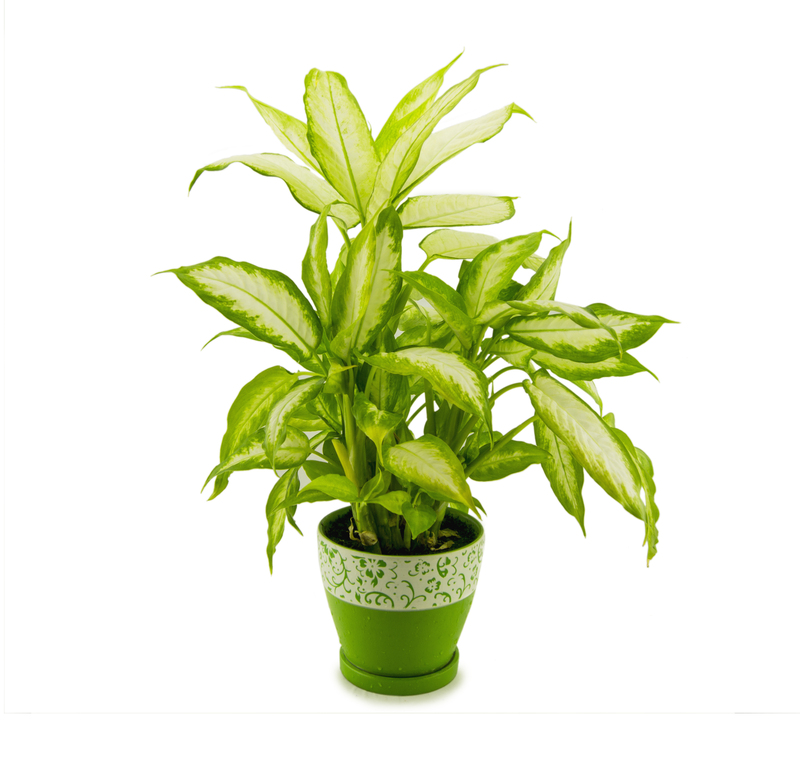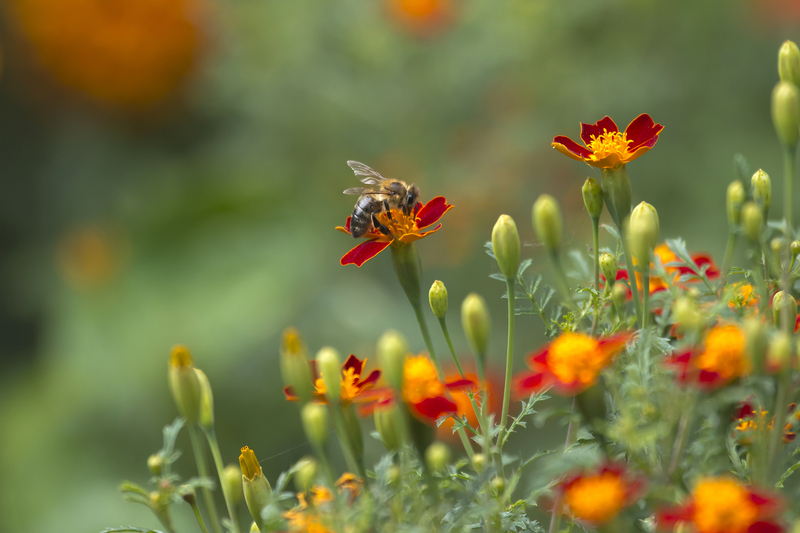Beginner's Guide: 9 Crucial Tips to Unlock Gardening Success
Posted on 13/06/2025
Beginner's Guide: 9 Crucial Tips to Unlock Gardening Success
Embarking on your first gardening journey? Whether you dream of a lush vegetable patch, thriving flower beds, or a quaint urban garden, the right start can make all the difference. In this Beginner's Guide, you'll discover 9 crucial gardening tips to unlock your green thumb and pave the way for gardening success. From choosing the perfect location to mastering essential plant care techniques, we've got you covered with expert advice, practical steps, and helpful resources to nurture your own vibrant oasis.
Why Start Gardening? The Joys and Benefits Await
Gardening for beginners is more than just a hobby -- it's a transformative activity for your mind, body, and environment. Here are a few compelling reasons to start your own garden:
- Fresh, homegrown produce: Enjoy fruits, vegetables, and herbs straight from your garden.
- Mental well-being: Reduce stress and boost mood through interaction with nature.
- Physical exercise: Gardening keeps you active and healthy.
- Environmental stewardship: Support pollinators, birds, and local ecosystems.
- Personal satisfaction: Experience the fulfillment of growing something beautiful or useful.
Convinced? Let's dive into those essential gardening success tips for beginners!

Tip 1: Choose the Right Location for Your Garden
Location matters. Most plants need at least 6-8 hours of sunlight per day to thrive. When planning where to start your garden, consider these crucial location factors:
- Sunlight exposure: Observe your yard, balcony, or windowsill throughout the day. Choose a spot that receives adequate sunshine for the types of plants you want to grow.
- Accessibility: Place your garden where you can easily water, weed, and harvest without trouble.
- Protection: Shield your plants from strong winds or heavy foot traffic, especially if you have pets or children.
- Drainage: Avoid low spots where water might collect and drown plant roots.
Pro tip: If outdoor space is limited, container gardening or vertical gardening allows beginners to unlock gardening success even on small balconies or patios!
Tip 2: Understand Your Growing Zone and Soil Type
Before you pick plants, get to know your local environment. One of the keys to gardening success is matching your plant choices to the conditions you have.
Know Your USDA Hardiness Zone
The USDA Plant Hardiness Zone Map divides North America into zones based on the coldest winter temperatures. Find your zone online to determine which plants will thrive in your area. Choose plants labeled suitable for your hardiness zone for the best chance of success.
Test and Improve Your Soil
- Soil texture: Is your soil sandy, clay-heavy, or loamy? Loamy soil is ideal for most plants as it holds moisture while draining excess water effectively.
- Soil pH: Most vegetables and flowers prefer a pH between 6.0 and 7.0. DIY test kits or local extension offices can analyze your soil.
- Enrich with compost: Organic matter such as compost improves soil structure, fertility, and microbial health.
Gardening for beginners starts with a solid foundation--quite literally! Good soil leads to robust, resilient plants.
Tip 3: Start Small and Scale Up
The excitement of a new garden can lead to ambitious plans, but begin small. A smaller plot is easier to maintain and less overwhelming for beginner gardeners. With a modest start, you'll gain confidence and skills--unlocking long-term gardening success.
- Try a 4x8-foot garden bed or a few large containers.
- Plant 3-5 different crops or flowers your first season.
- Focus on low-maintenance, high-yield plants like lettuce, cherry tomatoes, or marigolds.
As you build expertise, expand your garden each year to suit your tastes and available time.
Tip 4: Select the Right Plants for Beginners
Success starts with picking easy-to-grow garden plants. Not all plants are equally forgiving for first-timers. For beginners, aim for resilient varieties that thrive with minimal intervention.
Top Beginner-Friendly Edible Plants
- Lettuce and salad greens - Fast-growing, harvest in a few weeks.
- Radishes - Reliable, quick harvest, and great for cooler weather.
- Herbs (basil, parsley, mint, chives) - Grows in pots or in-ground, useful in the kitchen.
- Cherry tomatoes - Prolific producers in both garden beds and containers.
- Zucchini - High-yielding and forgiving.
Beginner Flower Choices for Easy Success
- Marigolds - Bright, pest-repellent, blooms all season.
- Sunflowers - Tall, cheerful, and hardy for kids or first-timers.
- Zinnias - Colorful and drought tolerant.
- Pansies and violas - Cool-season flowers for borders and containers.
Be sure to read plant labels or seed packets: check for suitable planting times, space requirements, and sunlight needs before sowing your new garden.
Tip 5: Learn When and How to Water
Proper watering is one of the most crucial gardening tips for beginners. Both overwatering and underwatering are common pitfalls. Unlocking gardening success starts with learning the right watering habits:
- Water deeply and less frequently so roots grow down and become strong.
- Morning watering is best; it reduces evaporation and helps prevent fungal diseases.
- Check soil moisture: Stick your finger in the soil--if it's dry 1-2 inches below the surface, it's time to water.
- Use a soaker hose or drip irrigation system for efficient, even watering that targets roots directly.
Plants in containers may require more frequent watering, while established garden beds hold moisture longer.
Tip 6: Apply Mulch to Maximize Moisture and Suppress Weeds
For maximum gardening success, mulch is the beginner's secret weapon. This protective material offers several key benefits:
- Conserves moisture by reducing evaporation.
- Prevents weeds from sprouting and out-competing your plants.
- Regulates soil temperature, keeping plant roots cool in summer and insulated in winter.
- Enriches soil as organic mulch (like straw or shredded leaves) decomposes.
How to mulch: Spread 2-3 inches of organic mulch (compost, wood chips, straw, or shredded bark) around your plants, avoiding direct contact with stems.
Tip 7: Feed Your Plants--Fertilize Wisely
For healthy growth, plants require not only sunlight and water, but also essential nutrients. Avoid over-fertilizing, which can harm plants and pollute the environment. Here's how to fertilize smartly:
- Start with rich soil: Compost or well-rotted manure adds nutrients and improves texture.
- Fertilize at the right time: Apply fertilizer during active growth, often in spring and mid-summer.
- Choose the right fertilizer: Organic options (compost, fish emulsion, bone meal) release nutrients slowly and enrich soil health long-term.
Always follow package directions or consult a local expert for advice on quantity and timing for your specific garden.
Tip 8: Maintain Regular Garden Care
Consistent care produces spectacular results in the garden. Make a habit of checking your plants every few days for signs of stress, pests, or other issues. Key garden maintenance tasks include:
- Weeding - Remove weeds early to prevent competition for nutrients and water.
- Pruning - Trim dead or damaged leaves and stems to encourage healthy growth.
- Staking and supporting plants - Use stakes or cages to support top-heavy crops like tomatoes, peppers, and sunflowers.
- Inspect for pests - Look for holes, discoloration, or sticky residue, and use non-toxic remedies whenever possible.
- Harvest regularly - Picking vegetables or flowers encourages more production and prevents overripening.
Gardening success comes with attentive, ongoing care that fosters a thriving green space all season long.

Tip 9: Keep Learning and Enjoy the Process
Embrace Mistakes as Learning Opportunities
Every beginner gardener experiences ups and downs. A failed crop or drooping flower isn't a setback -- it's a step toward mastery. Keep a garden journal to track what you plant, where and when, and how things grow each season.
Tap Into Local and Online Garden Communities
- Join local gardening clubs or visit plant nurseries for advice specific to your climate.
- Participate in online forums, webinars, or follow gardening blogs and YouTube channels to expand your knowledge.
- Attend workshops or events at community gardens to hone your skills and connect with fellow enthusiasts.
Celebrate Your Victories--Big and Small
Whether you've harvested your first tomato or kept a houseplant alive for six months, take pride in your progress. Gardening success grows with patience, curiosity, and the simple joy of nurturing life.
Final Thoughts: Your Step-by-Step Beginner's Gardening Checklist
Unlocking gardening success for beginners doesn't require a magic touch--just these nine essential tips, a spirit of curiosity, and a bit of daily care. Here's a quick checklist to kickstart your journey:
- Select a sunny, accessible location.
- Test and amend your soil.
- Start with a manageable garden size.
- Choose beginner-friendly plants.
- Master your watering routine.
- Mulch for weed and moisture control.
- Fertilize when needed, with care.
- Regularly weed, prune, and inspect your plants.
- Never stop learning--and have fun!
Ready to Unlock Gardening Success?
Equipped with these proven gardening tips for beginners, you're well on your way to transforming your space -- and yourself. So grab your gloves, dig in the dirt, and savor the rewarding adventure of growing your own garden. With patience and practice, you'll be amazed at just how successful a beginner gardener can become!
For more tips, tricks, and how-to guides, explore our related gardening resources and join a worldwide community of green-thumbed enthusiasts today.
Latest Posts
Elevate Your Garden with 5 Inexpensive Maintenance Tips
Step-by-Step Guide to a Child-Centric Garden
Ensuring a Lush and Secure Green Space for Your Pup

